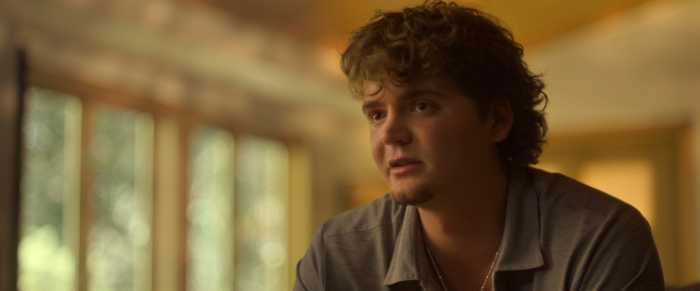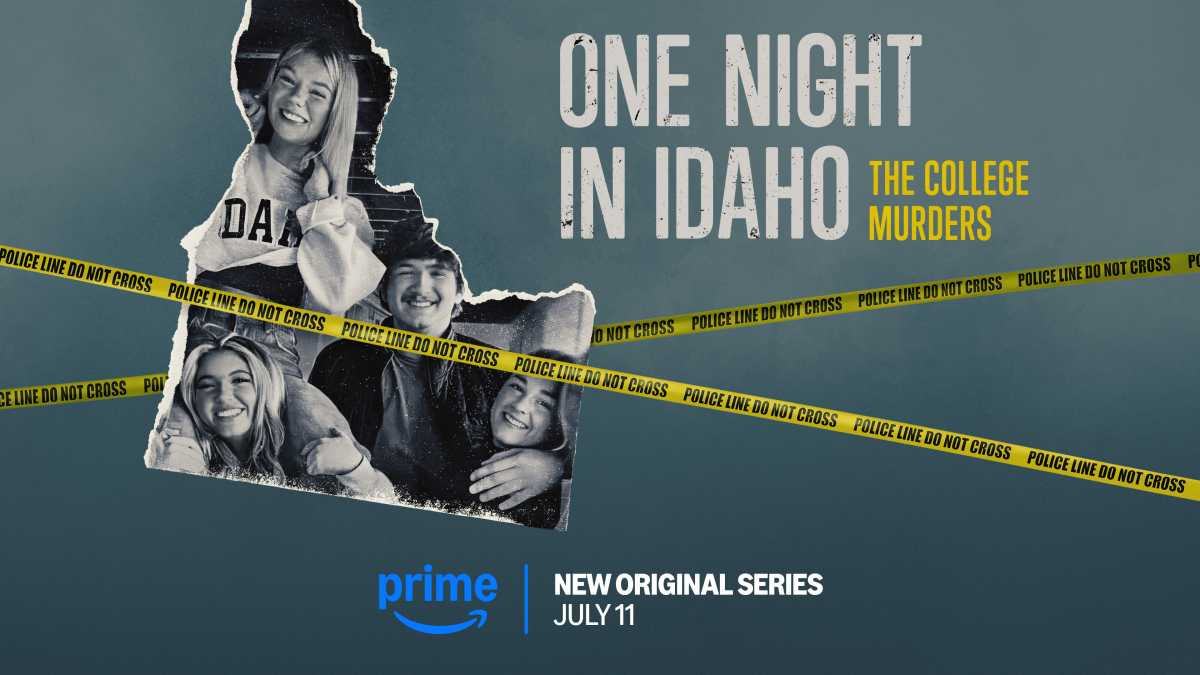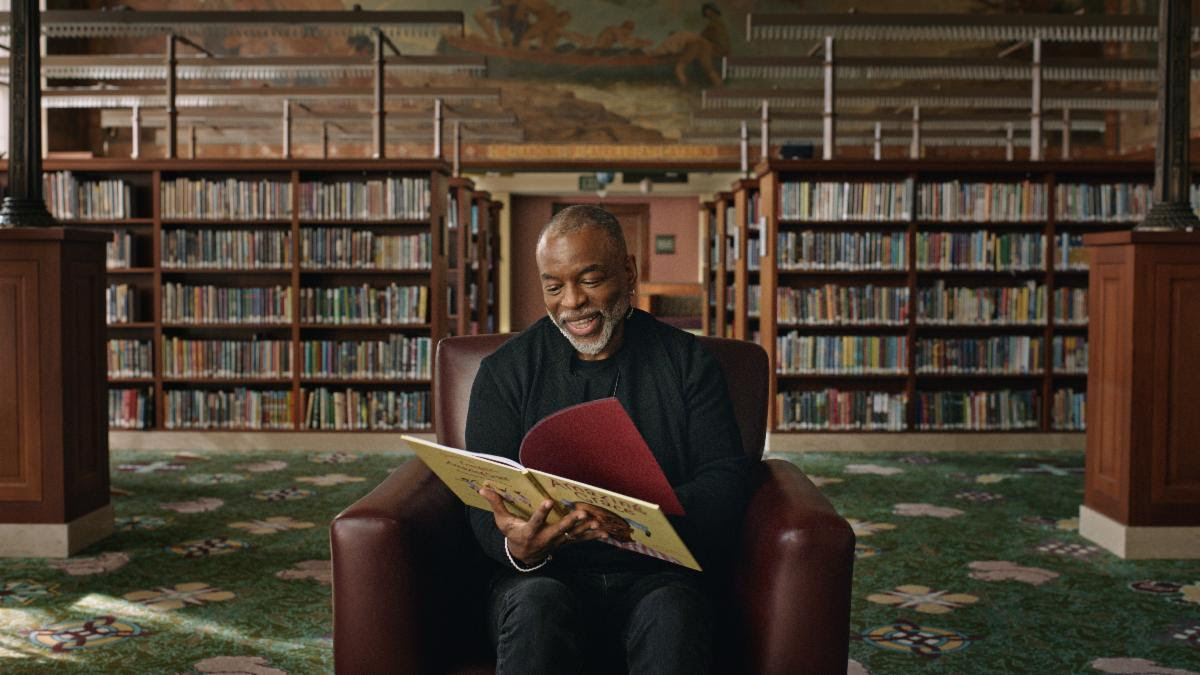Nearly two years after the shocking murders of four University of Idaho students gripped the nation, a new docuseries seeks to refocus attention on the human toll behind the headlines.
‘One Night in Idaho: The College Murders‘ examines the November 2022 murders of Madison Mogen, Kaylee Goncalves, Xana Kernodle and Ethan Chapin. The case swept the country and has continued to do so for years, but at the center of it all is a group of grieving families and friends left to pick up the pieces.
What filmmakers Liz Garbus (‘The Lost Girls’) and Matthew Galkin (‘Murder in the Bayou’) hope to do with this new series on Amazon Prime is cut through the noise, speculation and social media frenzy to give a voice back to the victims.
Galkin sat down with Metro to dive a little deeper into the project.
What was it about this particular case that made you want to get involved in this way?
I’ve only done a handful of true crime projects—my career is going to span almost every genre of nonfiction storytelling. But for crime projects specifically, always to me, the most interesting part and the part I’m most drawn to is: Can you tell the story from a victim-centric point of view? I’m usually much less interested in the killer or the perpetrator of whatever crime we’re talking about. Investigation is interesting, but only in that it provides a framework of a story.
I don’t want to speak on behalf of Liz, but her past work is very victim-centric as well. The emotional core of any story a lot of the time is through the lens of the victims or the families of the victims. And that is, if not the most important thing, one of the most important things to us about how to tell a story like this.
So in this particular case, I started tracking it like everybody else in November 2022. The details just weren’t adding up, it was such a horrific crime. And given the location and how safe of a town Moscow, Idaho is, and the fact that these four kids were so well documented on social media—there was so much imagery out there on not only their lives, but also the crime scene itself.
The house was central to a lot of their posts. There’s tons of imagery about this house and the fact that in the first seven weeks it was sort of a who-done-it story… I wasn’t tracking it as a documentary filmmaker, I was just tracking it as an interested viewer slash reader of the story.
As a filmmaker, how do you shift the narrative back to the victims and their families?
Once we realized what a loud story this was within the social media world—I mean it almost created an industry unto itself of how to try to dissect the story…there were armchair sleuths, a thousand different angles on this, proposed theories, pointed fingers and accusations at people. We realized that at the center of this really intense hurricane, we had not heard from virtually any of the families.
The ones that truly have not given interviews were of course of most interest to us. We really wanted to understand what was going on inside the eye of that hurricane. That was the original vision of this—can you tell the story from the inside of the hurricane? Because with [the families], not only are you dealing with grief and the worst possible cataclysmic event that could ever happen in your life, but you’re also dealing with the onslaught of all of this media tension and social media tension for people who typically led quiet lives.

What were those beginning conversations like with the families?
The Chapins and the Laramies, Maddie Mogen’s mother and stepfather, were specifically the two families that had never talked to the media before. And those were the two families that are sort of central to our series. There was a tremendous amount of hesitation. With the Chapins, I convinced them after much back and forth to at least let me fly out to Washington state from New York and take them to lunch and lay out what the vision of this series would be.
I’m just some guy coming in from New York, and they’ve been chased for months and months by every possible film journalist and podcaster. Everyone wants to tell the story and they weren’t interested. We had an incredible conversation… I mean, it lasted over three hours and they were incredibly emotionally forthright and open with me about their experience. It just kind of forged from there.
They understood right away if they aligned themselves with filmmakers that they trusted, that they would be able to tell Ethan’s story and their own personal experience in this series and do it in a way that they believed would be sensitively handled and truthful. And I would like to think that we delivered on that promise.
How do you, as a director, give the families and friends of the victims that emotional space to open up on camera?
They have to be ready…they don’t necessarily have to be experienced in doing it, but they have to be ready to go there. And once they’re ready, it’s them. All we can do is craft a line of questioning that will help them get to where they need to go. We can create an environment in the room that is very safe and very accommodating to whatever they’re going through emotionally. Usually, I almost always clear the room except for me and the director of photography.
These are people that have never talked about this. Not only have they not given an interview before, but there were people including Maddie’s mother, Karen, who doesn’t talk about this incident at all. So for her to sit for four maybe five hours, and just pour it all out and allow me the honor of sitting in that room and helping her shape this story… that’s all her.
Did anything from the interviews stand out or surprise you?
Time and time again, not just the families, but also the close friends, these are people again, who had never really given an interview before. They had just gone through the worst thing they’ve ever experienced within a year of experiencing it. The Chapin interviews were done in September of 2023, so not even a year. The way that they were so eloquent in communicating their grief and their experience and their healing process floored me every single time.
They were able to do it and they were able to do it in such a powerful way that when we got in the edit room, I think half our job was just to not f**k up what they had already given us. I could never have asked for more emotionally forthright interviews than we got for this project. It was our job to honor those interviews and make sure that we crafted the narrative in a way that did them justice.

What do you hope people walk away from the series thinking or feeling?
Our biggest hope is that this will allow people who think they know the story to have a completely different perspective on what was actually going on with the people that were closest to the center of this story. Before this series, the story has almost always been told from the outside looking in.
Our goal, and I think we have delivered on that goal, is to tell the story from the inside and looking out for the people that really lived through this and are continuing to do so. My hope is that people understand the human element of this story. It’s not just about the killer and his backstory and the investigative details of this case, which are not unimportant, but there are other aspects to this story that we feel are equally, if not more important….and that’s the human toll.
All four episodes of ‘One Night in Idaho: The College Murders’ are now streaming on Prime Video



























